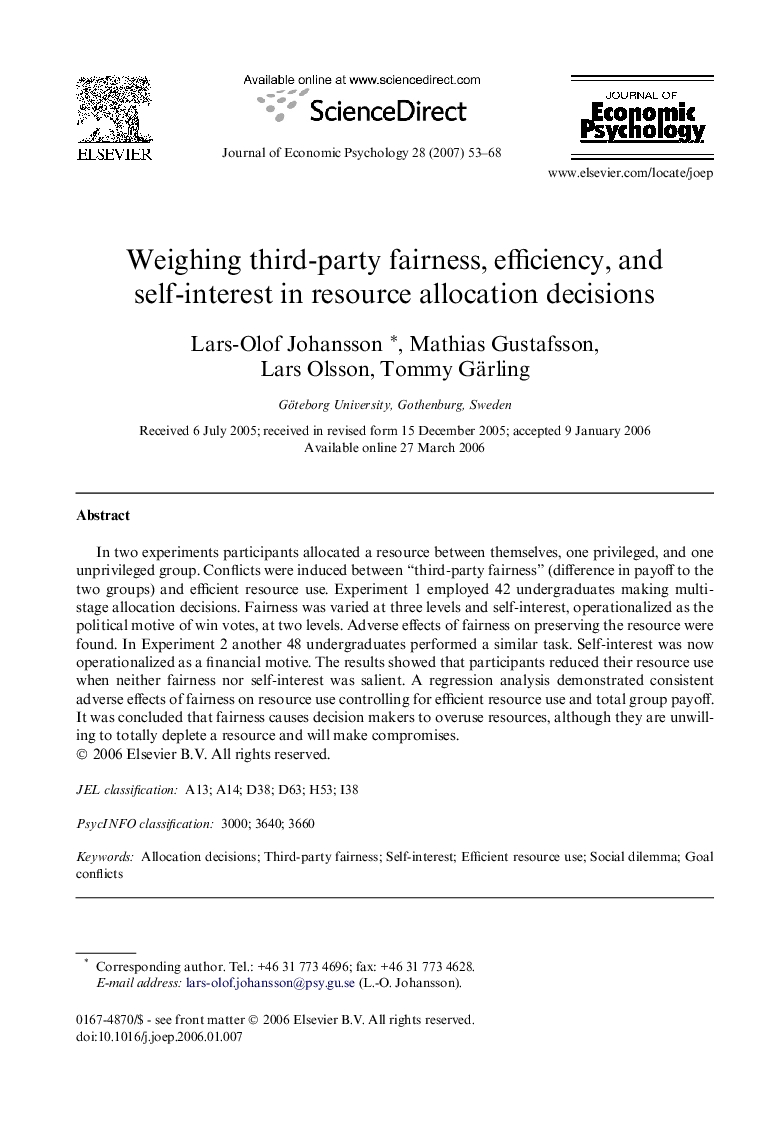| Article ID | Journal | Published Year | Pages | File Type |
|---|---|---|---|---|
| 885400 | Journal of Economic Psychology | 2007 | 16 Pages |
In two experiments participants allocated a resource between themselves, one privileged, and one unprivileged group. Conflicts were induced between “third-party fairness” (difference in payoff to the two groups) and efficient resource use. Experiment 1 employed 42 undergraduates making multi-stage allocation decisions. Fairness was varied at three levels and self-interest, operationalized as the political motive of win votes, at two levels. Adverse effects of fairness on preserving the resource were found. In Experiment 2 another 48 undergraduates performed a similar task. Self-interest was now operationalized as a financial motive. The results showed that participants reduced their resource use when neither fairness nor self-interest was salient. A regression analysis demonstrated consistent adverse effects of fairness on resource use controlling for efficient resource use and total group payoff. It was concluded that fairness causes decision makers to overuse resources, although they are unwilling to totally deplete a resource and will make compromises.
